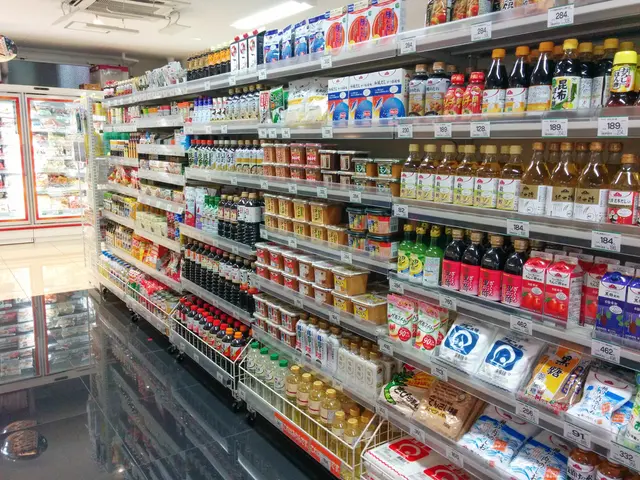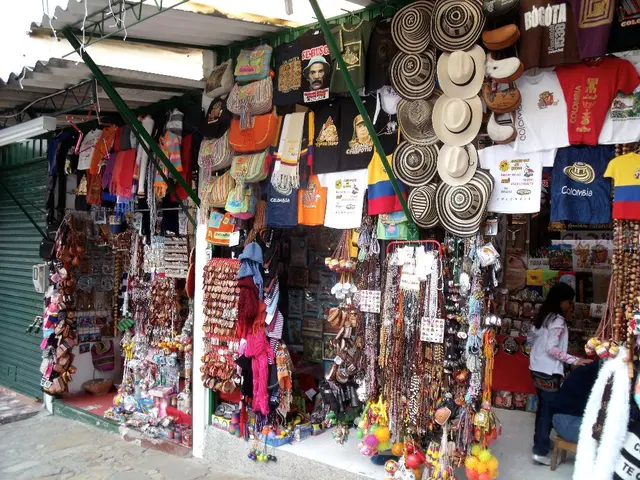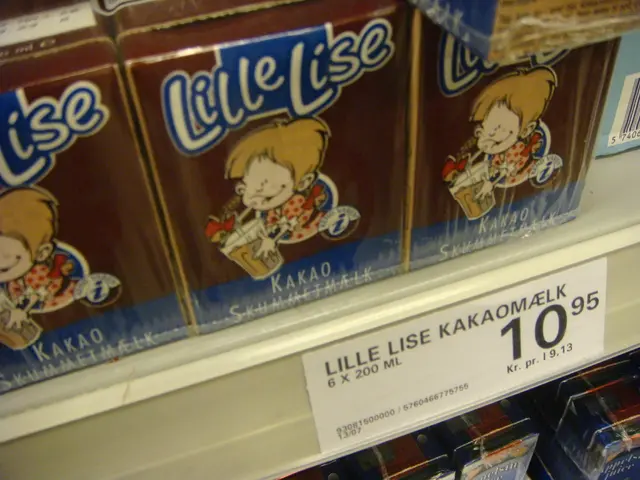Oil Production in Venezuela Persists Robust Expansion Accompanied by Increasing Exports and Plummeting Rates
The Scene: Lisbon, Portugal, September 12, 2024 - Our Scoop - Venezuelan oil production has seen a decent uptick, registers a 5-year high!
August's output, according to OPEC's latest bulletin, clocked in at 874,000 barrels per day (bpd), up from the July figure of 863,000 bpd. PDVSA, Venezuela's state-run oil company, reported an August production of 927,000 bpd, almost neck and neck with the prior month's 928,000 bpd.
The Venezuelan government has consistently targeted a 1 million bpd production goal, with their oil industry still grappling under the weight of US sanctions. Since 2017, the US Treasury Department has imposed financial sanctions, an export embargo, secondary sanctions, and various restrictions aimed at crippling Venezuela's primary revenue source.
However, PDVSA benefited from General License 44, a six-month waiver issued by the Biden administration in October 2023, allowing for expansions in sales and cargo movements without offering significant discounts or relying on shady intermediaries. This alleviation was short-lived, as the US reinstated wide-ranging sanctions in April, accusing the Maduro administration of failing to fulfill a political agreement with the US-backed opposition.
The US has repeatedly called Venezuela's presidential election results into question and endorsed the hardline opposition candidate's claims of victory. Several US House members advocate for stricter sanctions on South America's troubled nation. Post-GL44, the US Treasury demands international companies to seek permission before engaging with PDVSA, to avoid the threat of secondary sanctions. Key players like US oil giant Chevron and European counterparts Repsol, Eni, and Maurel & Prom continue to operate despite the political turmoil.
India's Refining Powerhouse Reliance Industries and ONGC Videsh, the nation’s state-owned oil and gas company, are seeking permits to expand their involvement in Venezuelan projects, according to reports. In late July, PDVSA granted joint venture stakes to Chinese firms Anhui Erhuan Petroleum Group and Kerui Petroleum, with the former participating in the light crude Petrokariña project and the latter entering the Ayacucho 2 field.
It remains unclear if these firms will engage with the US Treasury or defy the threat of coercive measures. Despite the ongoing US-induced obstacles, Venezuelan crude exports increased by 50% in August, reaching a 4-year high, with Spain's refineries receiving substantial amounts of Venezuelan crude via Repsol's projects.
However, the recent production and export improvements are dampened by a fall in oil prices. Brent crude briefly slipped below $70, a two-decade low when adjusted for inflation, on Tuesday. Venezuela's Merey grade, the main export favored by Asian customers, plummeted from $67.61 to $62.15 per barrel, marking a 17% drop since April and a 14-month low.
A currency shortage could complicate Venezuela's fight against inflation, with a widening gap between the official and black market exchange rate markers causing the Venezuelan Central Bank to inject rising amounts of US dollars into the forex system. Analyst Elias Ferrer from Orinoco Research indicated that Venezuela's massive sales discounts, coupled with falling oil prices, could lead to a significant currency devaluation within the year.
- Despite the recent increase in Venezuelan oil production, reaching a 5-year high, OPEC's latest report shows an output of 874,000 barrels per day (bpd), up from July's 863,000 bpd.
- PDVSA, Venezuela's state-run oil company, reported a slightly higher production figure for August at 927,000 bpd, just slightly less than July's 928,000 bpd.
- Amidst US sanctions, the Venezuelan government continues to aim for a 1 million bpd production goal, with PDVSA benefiting from General License 44 issued by the Biden administration in October 2023.
- The recent increase in Venezuelan crude exports, reaching a 4-year high in August, raises questions about whether firms will engage with the US Treasury or defy the threat of coercive measures.
- As Venezuelan crude exports increase, oil prices have dropped, with Brent crude briefly falling below $70, a two-decade low when adjusted for inflation, on Tuesday.
- The decline in oil prices, along with massive sales discounts, could lead to a significant currency devaluation within the year, according to analyst Elias Ferrer from Orinoco Research, potentially complicating Venezuela's fight against inflation.









